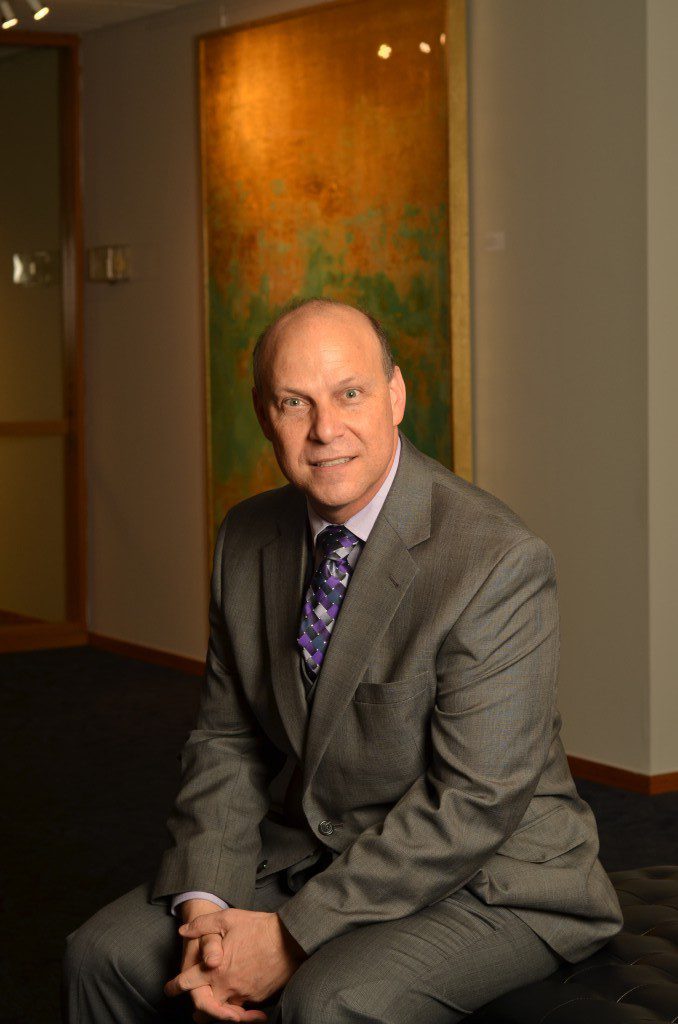
Photo by Dan Morgan.
Greg Weber brings nearly three decades of art management experience to Tulsa Opera this month. As the newly appointed managing director for the organization, Weber hopes to continue the growth that Tulsa Opera has experienced in recent years. Weber joins the organization after a three-year stint as the director of production at the San Francisco Opera.
Having worked with Houston Grand Opera, San Francisco Opera and other companies, what about Tulsa Opera caught your attention?
Opera is a like a small town – everyone knows everybody and what each person is doing. I heard new board leadership in Tulsa had taken bold steps to grow the company, and any type of growth in the arts can be challenging and risky. My work has always focused on growth, and the competitor in me loves a challenge. After meeting members of the board, I felt such passion and conviction from them for the city and the art form that I was convinced I had to be a part of the blooming of Tulsa Opera.
As an educator (Weber is a former University of Missouri-Kansas City assistant professor), do you see a learning component to viewing opera?
I see a learning component in every part of our lives – not just opera and music. Many of the most successful and brilliant among us are people who have studied music at some point in their lives. Some of the earliest human artifacts found have been musical instruments. Why? Music doesn’t keep our heads dry, it doesn’t feed our bodies, it doesn’t defend us against dangers. Music, I believe, has given us our greatest achievement – the ability to think creatively and abstractly. Without music we are less likely to discover innovative ways to keep dry, feed ourselves, grow as a generation.
What are your greatest concerns, not only for the organization, but for opera and the performing arts?
There has always been conversation surrounding support and funding the arts. As we have watched opera companies fail over the past five to seven years, that fear about financial sustenance has loomed menacingly over each company. The arts have always relied on devoted benefactors to keep them alive, and that model hasn’t really changed. Mozart had Emperor Joseph II, and Verdi had Antonio Barezzi … We will have financial challenges, but I have already seen buds of strength sprouting throughout the company, and I am inspired by the devotion I see in the company’s benefactors. Seeing this positive financial front, my concern focuses on arts education and attention spans.
Do you have ideas for expanding the audience for Tulsa Opera?
First and foremost, I want Tulsans to know that opera is touchable. I’m an example of that. I grew up on a small farm in the Midwest, the 11th of 12 children. At the age of 21, I saw my first opera, The Marriage of Figaro, and I was hooked. I didn’t understand the story, couldn’t quite follow it, but loved how the music elucidated it all for me. The best way to expand an audience is to be in the community and encourage people to give us a try.
How do you hope to most impact Tulsa Opera in the coming seasons?
First and foremost, I intend to impact Tulsa and Oklahoma! This is a fantastic city and a magnificent state. As a newcomer, I will not only remind Tulsans of this, but the entire opera industry of what a fabulous place it is I now call home. My efforts will focus as much on growing Tulsa and Oklahoma as they will on growing Tulsa Opera. All three need each other to offer an outstanding place for our children.
As an arts leader, I am a pragmatic dreamer – I always have my head in the stars, but my eye on the path to reach them. This means I bring a strong commitment to artistic growth and fiscal responsibility. This type of stability has always been one of my playing cards, and it will become a staple at the opera.
I will not allow opera to be marginal or irrelevant. I will defend it. I will fight for it. For 400 years it has inspired lovers, dreamers and even cartoonists. Through opera we see humanity’s greatest and most grotesque characters – many times we see ourselves, our weaknesses and our strengths. Opera is as important to our humanity as kindness is to our soul. As an arts leader, my greatest impact is to feed humanity’s soul.






















